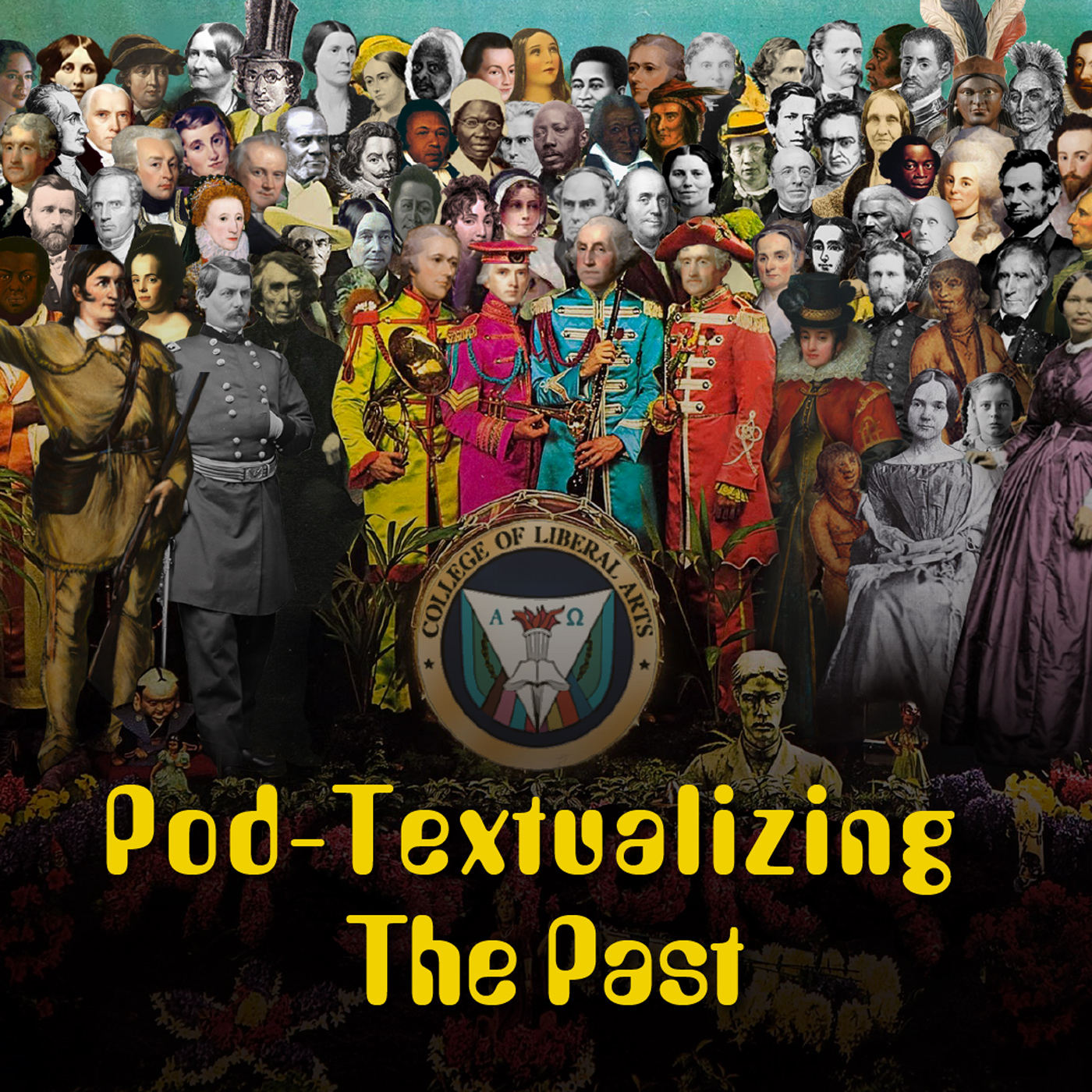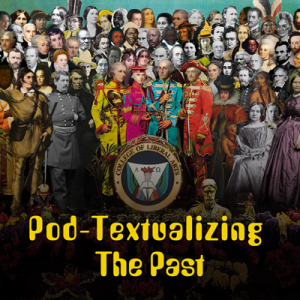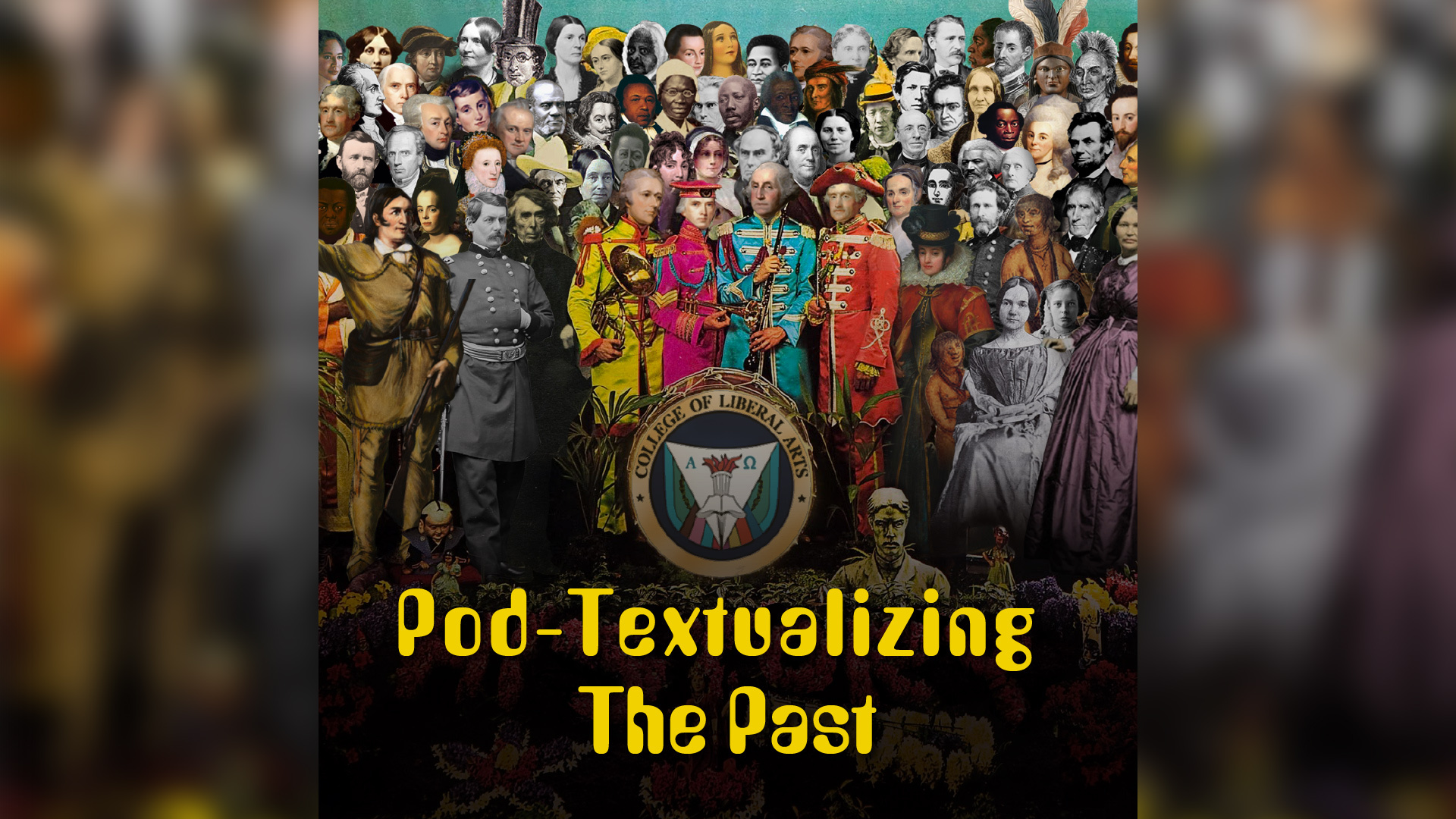
9.7K
Downloads
25
Episodes
Pod-Textualizing the Past is a podcast that explores U.S. history from pre-colonization through the U.S. Civil War. Produced at the University of Texas at El Paso, Professor Susan Stanfield talks with experts about specific aspects of U.S. history and their cultural impact.
Pod-Textualizing the Past is a podcast that explores U.S. history from pre-colonization through the U.S. Civil War. Produced at the University of Texas at El Paso, Professor Susan Stanfield talks with experts about specific aspects of U.S. history and their cultural impact.
Episodes

Monday Jun 17, 2019
Episode Five: Herman Melville and Exotic Worlds
Monday Jun 17, 2019
Monday Jun 17, 2019
Dr. Brian Yothers (UTEP-English) and Brad Cartwright (UTEP-History) are interviewed about Typee, Melville’s first novel. Using the book as a springboard the influence of Herman Melville is discussed as well as the attitudes of Americans about the South Pacific and Manifest Destiny.

Sunday Jun 16, 2019
Episode Four: Texas: Revolution, Independence and Annexation
Sunday Jun 16, 2019
Sunday Jun 16, 2019
Dr. Charles Martin (UTEP-History) is interviewed about the emergence of Texas as an independent nation and eventually it annexation by the United States. Dr. Martin looks at reasons for Texas independence, the role slavery played in the political aspects of the status of Texas, and some of the myths surrounding antebellum Texas.

Friday Jun 14, 2019
Episode Three: Guns, Guts and Glory: The American Revolution
Friday Jun 14, 2019
Friday Jun 14, 2019
Kevin Strombel (UTEP-History) is interviewed about the military aspects of the American Revolution. We examine weapons, strategy, and a comparison between the British and American aims in the war.

Friday Jun 14, 2019
Episode Two: Viva la Revolucion: French North America
Friday Jun 14, 2019
Friday Jun 14, 2019
Dr. Lowry Martin (UTEP-Languages and Linguistics) is interviewed about the French presence in North America, including the Haitian Revolution, early French settlements and the cultural legacy of the French in North America.

Friday Jun 14, 2019
Episode One: The Creosote Bush and Borderland History
Friday Jun 14, 2019
Friday Jun 14, 2019
Ligia Arguilez (UTEP-History) is interviewed about the Southwest plant, Creosote and its role in the past and present of the region. By looking at the history of plant we can imagine new ways of studying history and learn more about how this plant shapes the everyday lives of those in this area.
